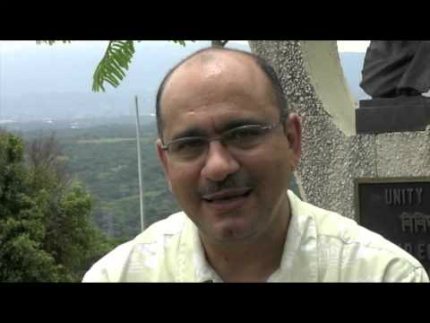ISJCR hosts Amr Khairy Abdallah
On Tuesday, April 25, 2017, the Institute for Social Justice and Conflict Resolution held a lecture on deradicalizing extremists with the case of Sadat’s assassination with Dr. Amr Khairy Abdallah, Professor and Vice Rector at the University for Peace (UPEACE).
This event is part of Associate Professor of Political Science, Imad Salamey’s graduate seminar titled “Communitarianism and Extremism Politics”.
Dr. Abdallah focused on the need to focus on the doctrine and specifically the Islamic ideology and how the misconceptions and misunderstandings of the sacred text and verses act as drivers towards extremism.
He focused on the struggle of narrative; he considered that Islamic extremists believe that it is their duty as Muslims to fight their corrupt regimes and the ‘evil forces’ that are fighting to prevent the revival of Islam “as a social and political way of life.”
After spending three years prior to Anwar Sadat’s assassination, 1981, 1982 and 1983 interrogating extremists involved in this extremist action, Dr. Abdallah rejected the claim that the root causes of religious fundamentalism lay in social or economic conditions like poverty, unemployment. He assured that those extremists were literate and employed.
In that context, he provided the two Coptic church explosions couple of weeks ago as an example since the two violent extremists who committed the suicide bombers “were college educated people with jobs and were from good families also,” according to Dr. Abdallah.
However, Abdallah utilized the example of Dr. Nageh Ibrahim, a previous violent extremist who shifted his doctrine into peaceful means, to express his optimism with counter violent extremism strategies since Ibrahim and many other “leaders of Islamic Jihad in Egypt started to renounce violence openly and review their own doctrine and replace it with a doctrine about peaceful transformation and peaceful change.”

Moreover, he posited that “there is a space in every belief system to develop a tendency of hating other people and to exercise some sort of violence and to justify that violence. In the case of Islam,” he continued, “many of its adherents, they do have the belief that once upon a time, we [Muslims] did have the hugest empire and civilization and contributed to the world; this happened when we [Muslims] were good Muslims.”
Abdallah returned back to the Soviet invasion of Afghanistan to examine the rise of violent extremism there. He postulated that the CIA had a very brilliant idea in 1979 to bring together those people who have been fighting in Algeria, Libya, Morocco and Egypt into Afghanistan. They understood that building on the Islamic sentiment and on the fact that Communism is associated with atheism, they can convince the Islamic fighters to fight the apostate communists in Afghanistan. However, unexpectedly, the United States failed to reverse the mission and deradicalize those fighters.
He posed the extremists’ dilemma of what went wrong? How come Muslims were the greatest civilization and now are at the bottom?
As a counterextremism strategy, Abdallah proposed establishing a counter narrative by the Islamists themselves based on peaceful and non-violent means.
Abdallah focused on two sides for countering extremism:
1- Affecting a change of the doctrine
2- Addressing real grievances social injustice, political and economic injustices
Furthermore, he suggested to find deradicalized extremists in the Arab world and the European world to share their experiences to speak to the young people and provide alternative means to violence.
Several questions were asked pertaining to the converts who find the IS ideology appealing as well as the psychological approach and the effects of Sadat’s open-door policy on the rise of violent extremism in Egypt that led to his assassination.
Finally, Dr. Abdallah pointed out the importance of spreading an alternative peaceful doctrine as well as addressing social injustices and grievances through the media and through advocacy in order to counter the extremist ideologies exploiting the Islamic sentiment and the ‘romantic narrative’ of the righteous ancestors.